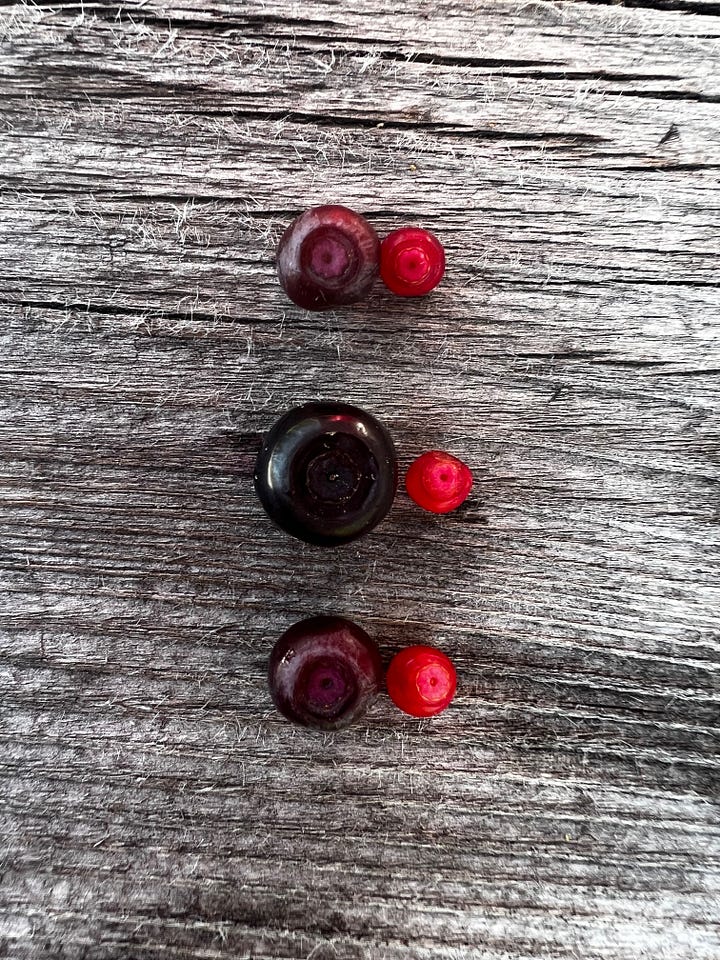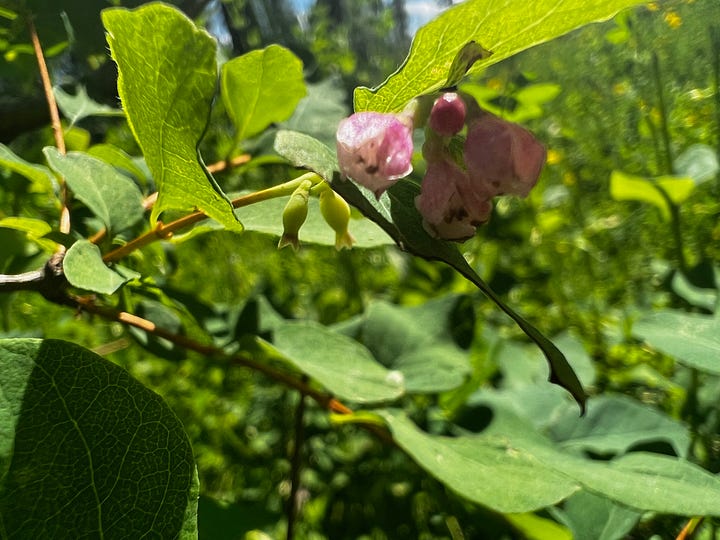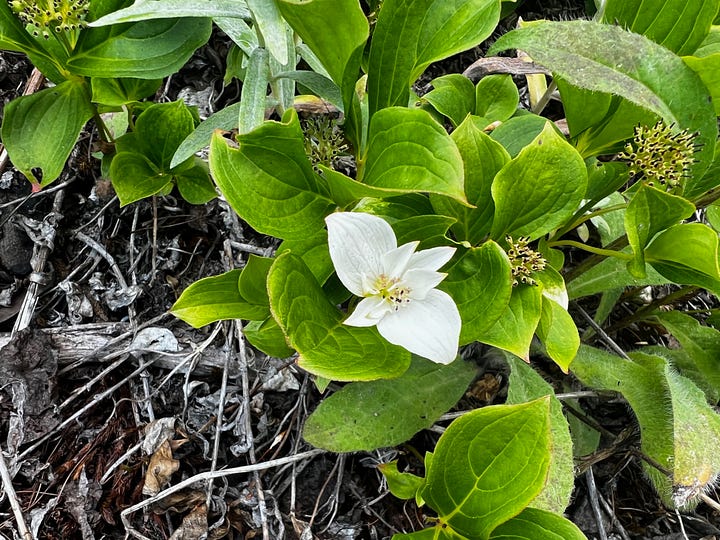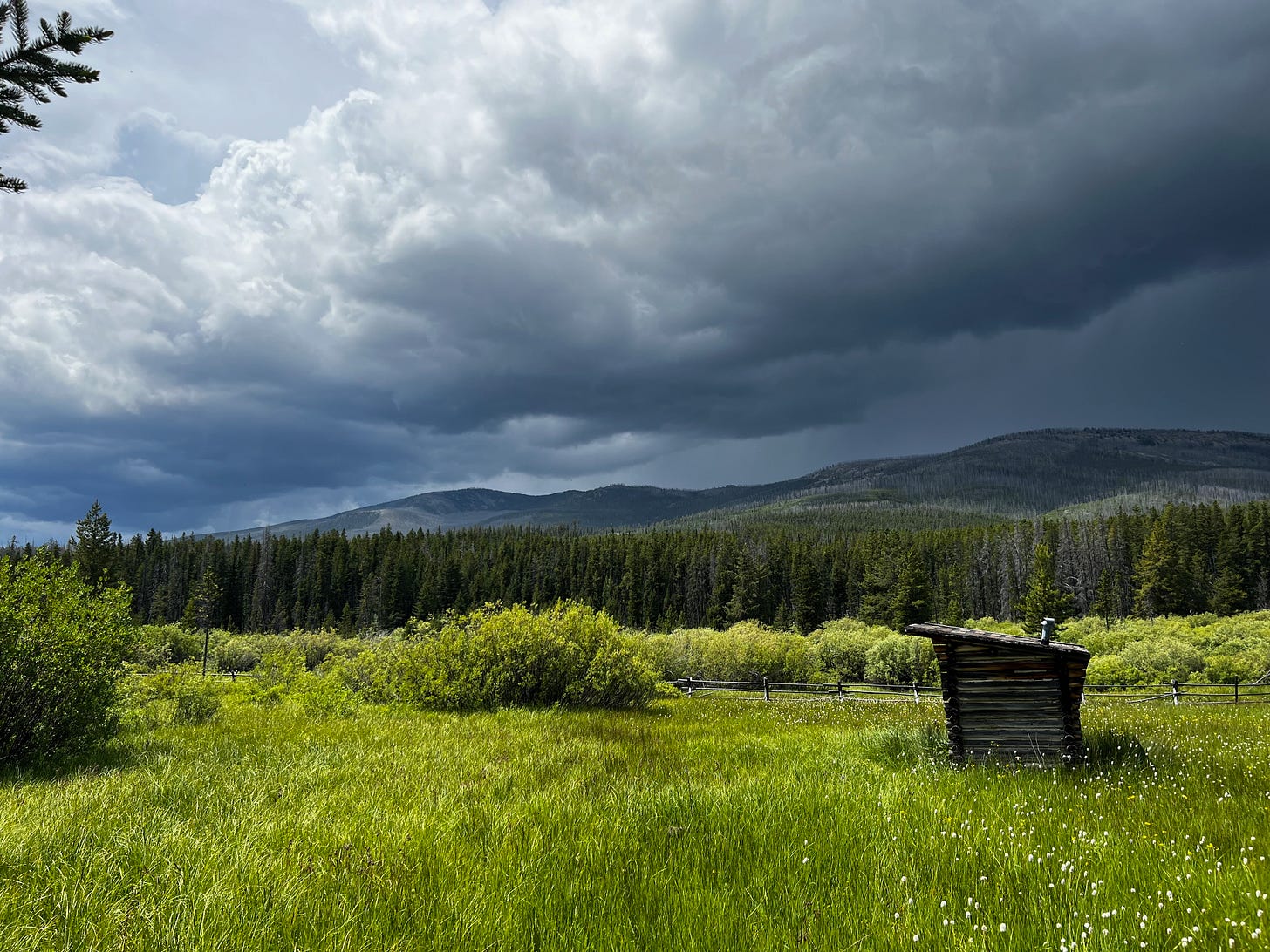Next week, July 9-12, is the international Reclaiming the Commons conference in Portland, Oregon. I’ll be on a panel titled “Tales of Loss and Restoration” on July 10th. If you’re in Portland and would like to go for a walk or have coffee, I might have time! My son is coming with me and I’ve been informed that at various points we’ll be visiting the Japanese gardens, a Manga store, and playing laser tag (him, not me).
I’ve just posted a new story to the Threadable reading circle on Identity & Belonging in Science Fiction and Fantasy, Nnedi Okorafor’s “The Book of Phoenix.” I lingered on the previous read, Octavia Butler’s “Bloodchild” (no online version), because I’m a little obsessed with the ways she writes about identity and belonging—obliquely, sparingly, perfectly—in a world where the human characters have limited choices around their own freedom. It’s a quintessential Butler theme that I think gets less attention than other aspects of her stories. (Threadable is only works for iOS right now.)
On the rain-sogged soil by a cabin hiding up in the Pintler Mountains, miles past the last electric line, the camas flowers were blooming. There’s a cluster down by the outhouse, and an even bigger patch next to the toolshed, where a whole bunch of buds were just about to open. I can smell them now, looking at that photo above, except it’s a real scent, like apple blossoms, coming to me from the open door. It’s too late for apple blossoms so I’m not sure what I’m smelling. Something wonderful and distracting.
Distraction gets a bad rap, probably because most distractions that we’re consciously aware of these days are digital demands or machine-made noise or others’ needs interrupting attention or requiring constant awareness. Too many kinds of distraction feel physically draining, and we rarely have a choice about its presence. I go offline for days at a time and turn off WiFi for many working hours, and still feel constantly bombarded.
There are distractions that restore, though. Like when I was up at that cabin sitting on the porch between window-shaking thunderstorms, reading The Prehistory of Private Property in between staring at the rumbling sky and its moods, and the Swainson’s thrushes calling somewhere in the woods beyond the dense willows surrounding the creek. Like this:
“The modern Western conception of property is an outcome both of the forcible establishment over the objections of the people and of the conscious effort of early modern property theorists ‘to establish preemptively exclusive private ownership of material things by individuals as the essential nature of property.’ According to Olsen . . .”
Swainson’s thrushes. I look around, knowing they’re too far to see but hope to spot them anyway. They might have woken Sleeping Beauty with their liquid song, or called Merlin from his cave. Who can hear them and not feel their heart lifted?
It takes ages to get back to the book and its critique of John Locke and private property. But when I do, I feel refreshed. Giving the book my attention is easier than it was before.
There’s research on this kind of distraction, the attention nature requests of us. I included it in A Walking Life because the loss of energy and attention many of us are conscious of in our daily lives can be directly traced to what happens to our brains while trying to handle the onslaught of noise and activity often experienced in urban areas. Cities aren’t inherently draining, so much as the vehicle traffic and other machinery they’re built for are draining. “In a city, even relatively simple tasks are cognitively taxing,” as one study put it.
In natural settings the attention needed is of the soft kind. It’s symbiotic. It doesn’t demand of us; it entrances us, even if we have to be on alert for dangers. It’s inherently interesting to humans because we evolved along with it, whereas so much of the attention and distraction that’s exhausting was imposed upon us relatively recently. Even building and street design make a difference in how tired, drained, and anxious people feel just going about living their lives.
It’s not anyone’s imagination that spending time in nature is restorative. Including for me, spending far more hours watching and listening recently than I did reading self-assigned research:
“The labor-mixing criterion gives colonial settlers and European lords the right to take all of that land, i.e. most of the world’s land. . . . Lockeanism eventually revolutionized the world’s conception of what property was by portraying full liberal ownership as if it were something natural that had always existed, even though it was only then being established by enclosure and colonization.”
Thunder, roiling clouds, Swainson’s thrush. Attention drifts upward and outward.
Earlier this week I was on a backcountry camping trip in Glacier National Park with my spouse and daughter. I’ve never been backcountry camping in the park—I don’t even go hiking there much in the summer despite living a half-hour’s drive away from the west entrance because it feels too crowded—so had never seen the safety video the backcountry permit office requires you to view before heading out. It’s all good reminders, mostly about hanging food and anything with a scent out of bear reach, how to deal with trash and any food particles, how to deploy bear spray, and all kinds of tips on interacting with bears if you run into them. Talk quietly, don’t present as a threat, etc. It all made plenty of sense until they got to the line, “If a bear starts to eat you, . . .”
It immediately became a family joke that will probably be quoted until everyone involved is once again soil in the ground. “If a bear starts to eat you, . . .” What? What do you actually do if a bear starts to eat you?
The word choice of “starts” instead of “tries” is telling and important: your options for not letting the bear succeed in eating you are limited.
We hiked a little over five miles in, along thick patches of ripe huckleberries and blooming snowberry bushes—one of my favorite flowers—trillium, fireweed and pearly everlasting. And every few moments, the call of a Swainson’s thrush.




My daughter and I hammered in the stakes of our shared tent in a drizzle and rising wind that turned Lake McDonald into an unrecognizable mass of high waves, the bare tree snags of the shoreline’s vast old burned area teetering in the gale. We ate in the food prep area, sheltered from the wind by young ponderosa pines and being cautious of losing any food scraps to the ground. My daughter had trouble getting to sleep, and I tried not to wake her when I crawled out much later to find the wind completely stilled and a full, golden Moon shining above the peaks, over the lake like it was daylight.
The next morning was cool but not cold, the air calm, and the tall snags around the camping area populated by cedar waxwings chasing one another around. We walked down to the lake, its waters nearly smooth. A kingfisher flew across the sun.
Human attention isn’t easy to control. The most demanding things snag it all the time, and it’s no wonder that meditation apps and noise-canceling headphones are enormously popular for those who can afford them. I don’t want to be distracted by my email or phone notifications or even a neighbor stopping by or someone in my house looking for lunch. But I do want to be distracted by the rest of this: the world that humans didn’t build but that we are part of, evolved with, interacting among all of the time. The world that we use and exist with and could attend to more if it weren’t constantly being pressed into service for solely human purposes.
How many people get times like I get, to watch a full Moon rise over a silent lake, listen to birdsong and the sound of air moving through the trees? I want everyone to have access to it, to choose where their attention goes and to always have opportunities to restore it.
I finished The Prehistory of Private Property while at the cabin; the welcome distractions even added to its relevance:
“The myths with real power are the ones we don’t notice—the ones that affect our thinking in ways we seldom recognize and therefore seldom challenge. The most effective myths keep people from asking the right questions.”
I love bears and plan on coexisting with them forever. Being eaten by one doesn’t seem to be a bad way to go but I’d rather . . . not. And if it came to the moment I’m sure I’d rather not. It will, however, have my full attention. Which I hope will not have been devoured too much by the demands of the human-made world—the digital, the machine-serving, the cannibal-capital.
You know what you do if a bear starts to eat you? “Fight back in any way possible.”
Swainson’s thrush.







Oh, the Swainson's thrush! I fell for them hard when we lived for a year on Lopez Island in the San Juans. Thank you so much for sending their voices out to us! As far as being eaten by bears, I believe the same thing goes (where I live) about hungry sharks. Most of them won't touch you, but once in a while. . . . A woman got attacked and disappeared just a few months ago off the beach closest to us, the shore where I just went diving last week. . . . Her death prompted a number of conversations around here, like, I definitely don't want to to go that way, but if I do meet a hungry shark, don't anyone think I'll be disappointed if the shark does decide to fill up on me. I'll be in a place I love, the ocean. It will likely be quick. And what an amazing thing, to feed the sea forever. I think about all the near-death experiences I've read about that happened because of physical trauma: they don't report terror and pain, only peace. Like something sublime happens in those last moments, something related to shock and maybe related also to what comes after. Anyway, thanks for recording these beautiful moments for us, in writing and audio.
This was pure joy, Nia.
It is getting to be late in the evening, I am tired, and yet this post absolutely filled my sails. It made me want to go outside, lie in the grass (being careful to watch out for dog poop), and just stare at the stars. I can think of no better use of time than to be still and allow, if only for a few minutes, my spirit to melt back into the cosmos, back into infinity, back into the center.
My favorite quote from the book you referenced is this: “The myths with real power are the ones we don’t notice—the ones that affect our thinking in ways we seldom recognize and therefore seldom challenge. The most effective myths keep people from asking the right questions.”
Especially that last line. Like other forms of delusion, it is the myth that lurks unnoticed in the dark corners that holds the most sway over our way of seeing the world, and henceforth, our way of being.
In his book, A Brief History of Time, Ronald Wright states the following: "Myth is an arrangement of the past, whether real or imagined, in patterns that reinforce a culture's deepest values and aspirations. Myths are so fraught with meaning that we live and die by them. They are the maps by which cultures navigate through time."
What does one do when a map based upon faulty premises is leading an entire civilization over a cliff and into the abyss?
I know what I'm going to do. I'm going to look at your beautiful images again, listen several more times to the song of the Swainson’s thrush, and imagine a different sort of world.